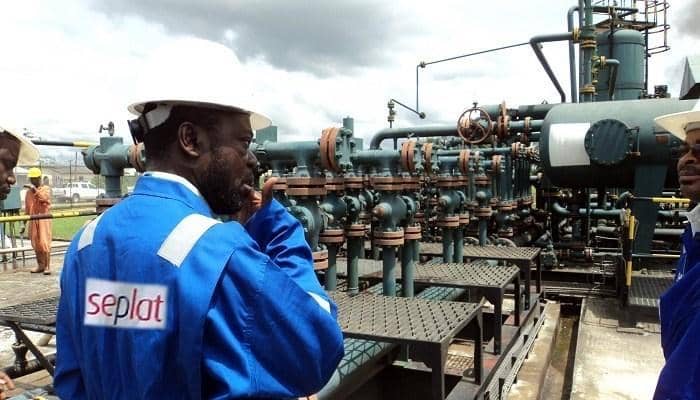The Chief Operating Officer of
Seplat Energy, Mr Samson Ezugworie, has said they will revive hundreds of idle Nigerian oil wells.
He said they will embark on the implementation of the plan after completing Seplat’s purchase of Exxon Mobil Corp.’s onshore oil and gas assets in the West African nation.
Our immediate focus is rig intervention, short-term oil-generation activities, rejuvenating idles wells and bringing them back to production,” Ezugworie said.
“Only 200 of about 600 blocks are producing.”
The bright prospects of reviving these old oil wells raises questions why the government takes years to sanction asset sale.1
Nigeria approved Exxon’s sale of the assets to the independent energy supplier in October after about two years.
A similar sale by Shell that could unlock up to 600,000 barrrls per day of oil remains stalled by bureaucracy and intrigued.
SEPLAT’s deal took advantage of foreign companies exiting Africa’s largest oil producer.
Seplat this week paid $800 million of the purchase price, which followed an initial $128 million paid when the deal was signed in 2022. It deferred transfer of a further $257.5 million to December next year due to certain decommissioning, abandonment and joint venture costs, the company said.
Seplat, which is listed in Lagos, Nigeria and London, views the acquisition as a good deal in terms of costs and returns.
“It’s just a little over half of the Ebitda for the full year, so it pays back itself very quickly,” said Chief Financial Officer Eleanor Adaralegbe, referring to earnings before interest, taxes, depreciation and amortization, which rose 25% to $383 million for the nine months through September from a year earlier.
The company also sees the deal doubling its production and said it boosts combined assets to 11 blocks in onshore and shallow water Nigeria, 48 producing oil and gas fields, five gas-processing facilities, and three export terminals.
Seplat’s goal is to lift output to more than 200,000 barrels a day, from about 71,000 barrels of oil equivalent daily now, Chief Executive Officer Roger Brown said in the same interview, without adding how quickly this would happen.
“In the portfolio we have significant gas opportunities,” Brown also said. “There is huge opportunity in LNG and the domestic gas space.”
























